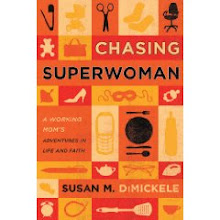Today is Maundy Thursday. Christians all over the world celebrate the Last Supper – Jesus’ final meal with his disciples before his death. But how do we know about the details of the Last Supper?
For that matter, where am I getting all the information about the last week of Jesus’ life? All week, I’ve been writing about Jesus. How do I know the stories are even true?
Everything I know about Jesus (and everything I’ve written) is based on the New Testament. And regardless of whether you believe the New Testament is inspired by God, it’s fair to examine its authenticity as a reliable, historical text.
How does the New Testament stack up next to other ancient manuscripts?
To start, it’s important to consider both the number of copies and the number of years between composition and the earliest surviving copy. (The more copies the better; the fewer years between composition and copy the better.)
Importantly, we have 24,000 copies of the New Testament – with the earliest complete copy dating 280 years after original composition. As for individual books of the New Testament, some of the copies date much earlier (for example, parts from the Gospel of John date 35 years after original composition).
How does the New Testament compare to its literary peers? Well, we have 10 copies of Julius Caesar’s Gallic Wars, the earliest of which dates 950 years after original composition. Likewise, we have 27 copies of Livy’s The History of Rome, the earliest of which dates 300 years after original composition. And most scholars would agree that both the Gallic Wars and The History of Rome are reliable, historical documents.
There are many other reasons to rely on the authenticity of the New Testament – such as the fact that it was drafted by eyewitnesses (or by their disciples) soon after the events described therein. It also doesn’t sugar coat history – the authors include detail that is embarrassing and even disturbing.
But the best judge of the New Testament is probably you – have you read the New Testament? What were your conclusions?
(Special thanks to Pr. Eric Waters for his recent article in the Cornerstone from which I borrowed much of this content.)
Thursday, April 1, 2010
Subscribe to:
Post Comments (Atom)










No comments:
Post a Comment